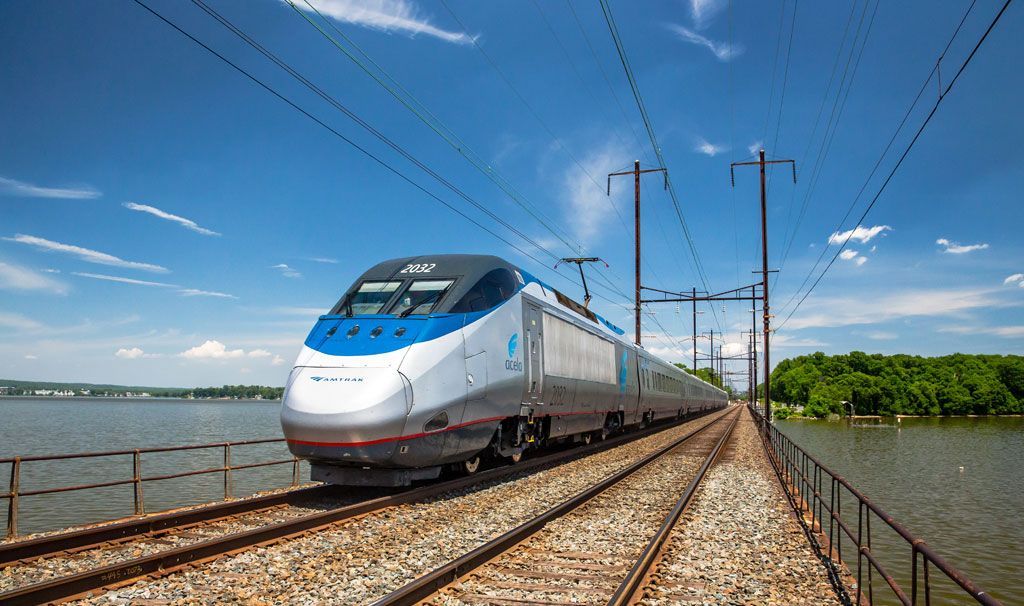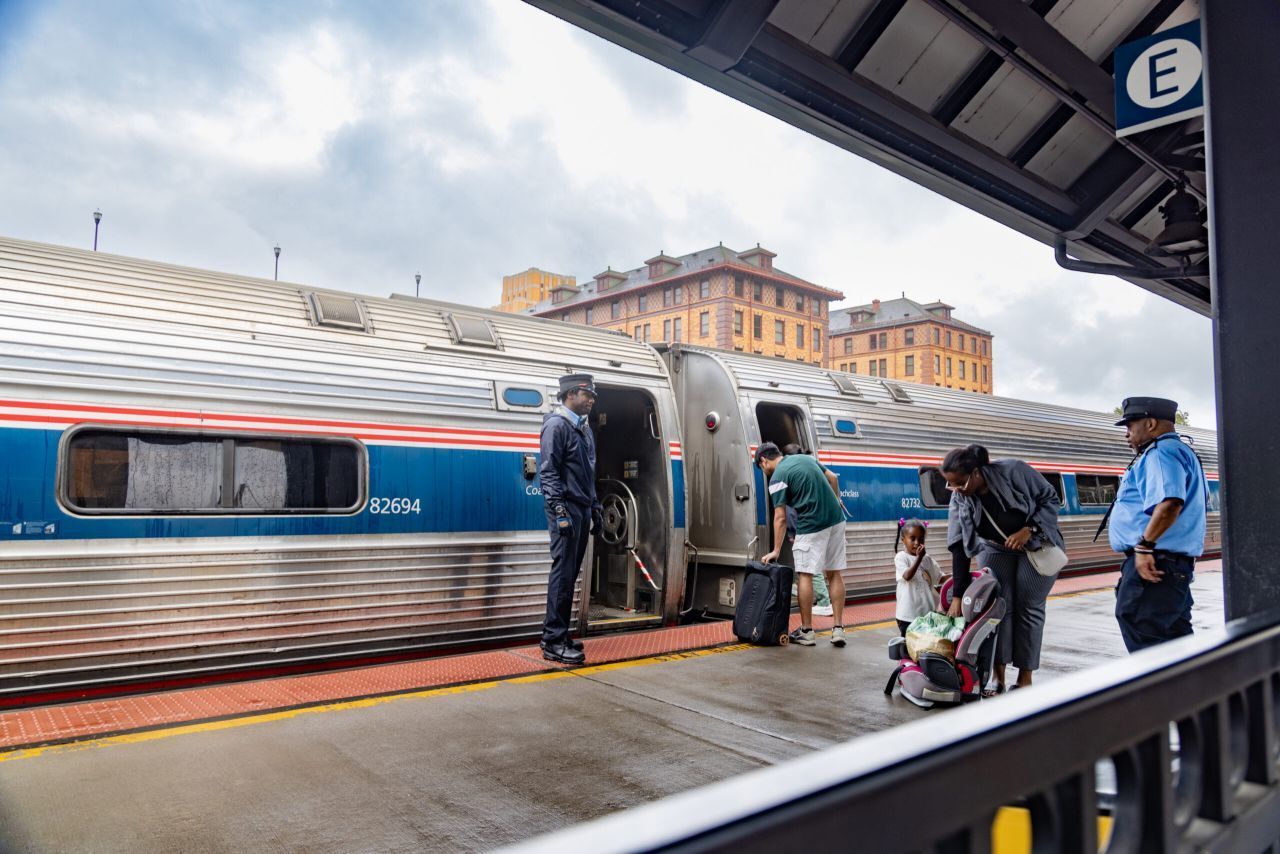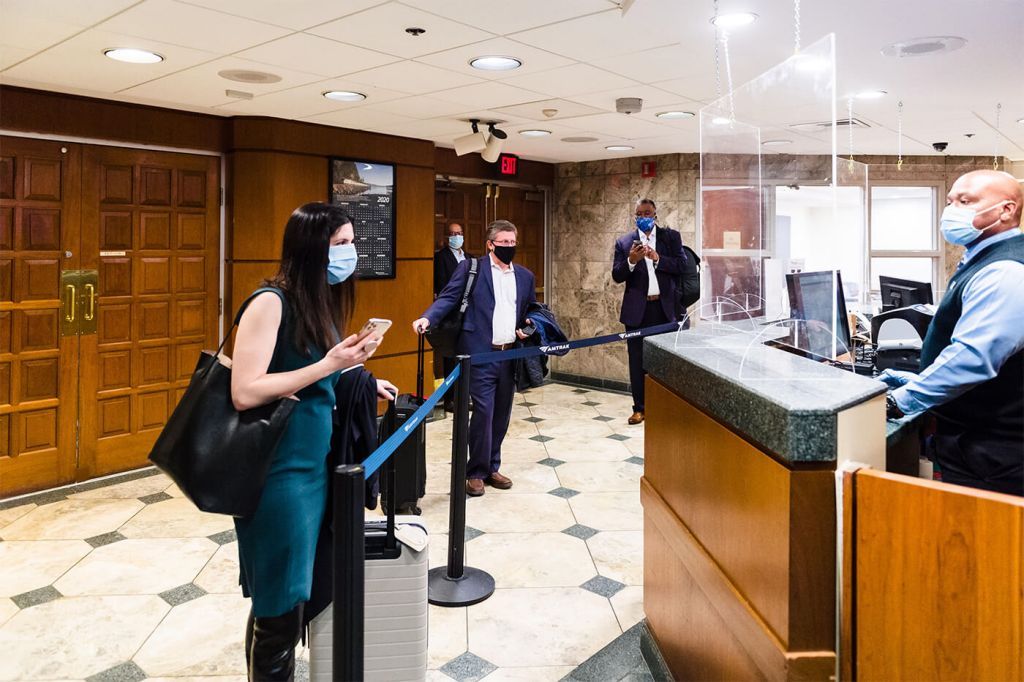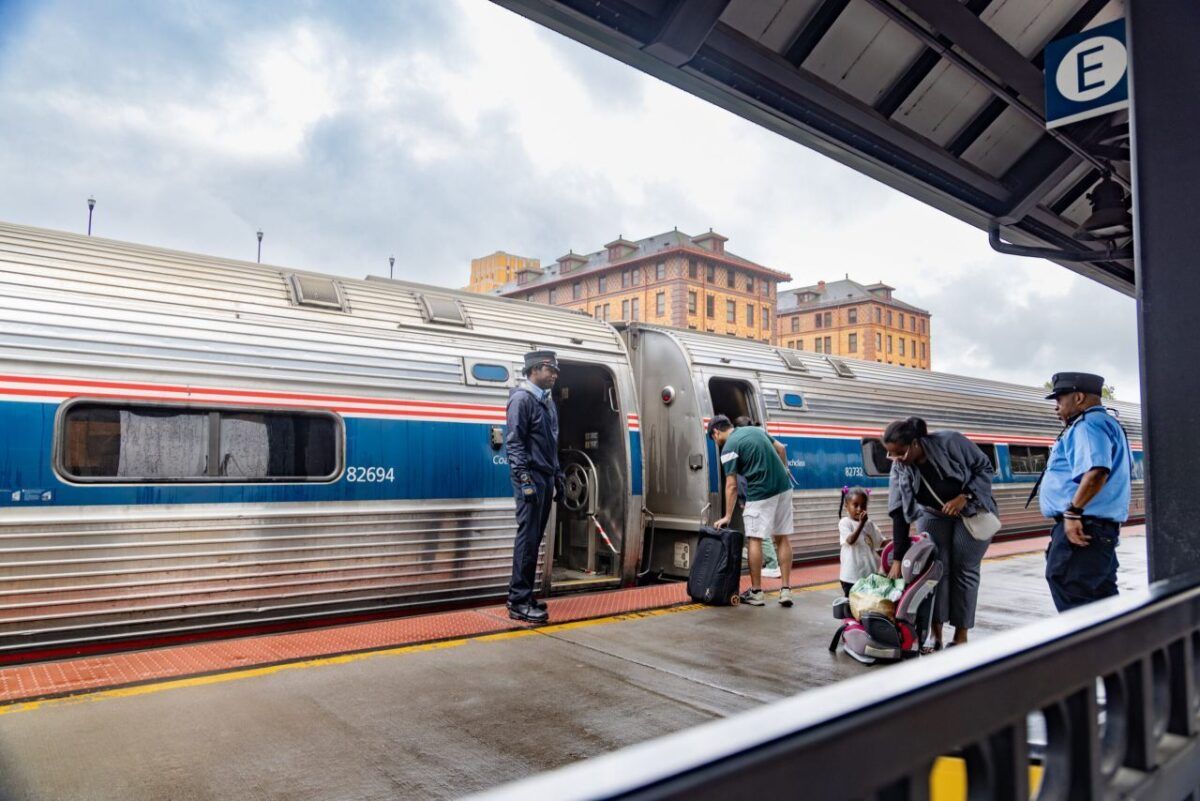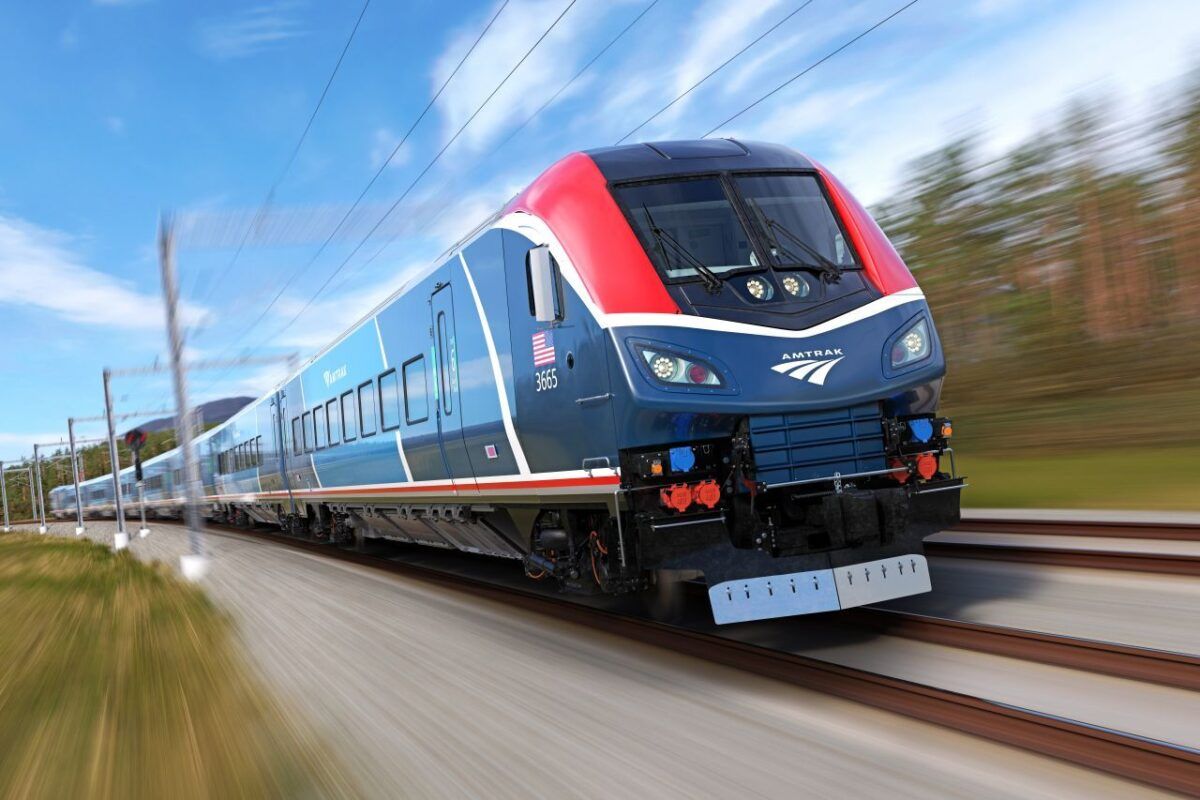As part of Amtrak’s vision for the future, Amtrak has pledged to achieve net-zero greenhouse gas emissions across the Amtrak Network by 2045.
This net zero emissions target focuses on expanding efforts across Amtrak’s entire carbon footprint to reduce environmental impacts from operations while safely moving people.
“Not only are trains convenient and comfortable, they are also one of the most sustainable modes of transportation,” said Amtrak CEO Stephen Gardner.
“With new equipment, modernized stations and net zero emissions, Amtrak can lead the drive toward sustainable transportation throughout the nation.”
“We congratulate Amtrak for this ambitious commitment to further reduce its carbon footprint, cementing its place as a leader in the clean transportation revolution,” said U.S. Transportation Secretary Pete Buttigieg.
“As we continue working to implement President Biden’s Bipartisan Infrastructure Law, we look forward to working with Amtrak to demonstrate the key role of passenger rail in fighting climate change.”
Climate change requires collective action to curb emissions and mitigate irreversible environmental and societal damage. Amtrak plans to take the following actions, which would provide significant benefits to the customers and communities we serve:
- Achieve net-zero greenhouse gas emissions across Amtrak’s network by 2045: Begin with efforts to increase energy efficiency, followed by the implementation of renewable fuels and energy.
- Reduce diesel fuel use through advanced technologies: Leverage industry-leading research and testing in collaboration with state partners and experts to progress innovation and research in fuel-cells, hydrogen, batteries and other zero-emission technologies.
- Achieve 100% carbon-free electricity by 2030: Continually focus on energy efficiency upgrades to reduce consumption and gradually meet all remaining needs using carbonfree electricity through renewable energy generation and power purchase agreements.
“We are seeing a new generation of travelers who are conscious of their environmental impact. This is providing a significant opportunity to attract rail riders well into the future,” said Amtrak President Roger Harris. With a historic investment in improving and expanding passenger rail, the Bipartisan Infrastructure Law (BIL) signifies the important role trains play in the future of sustainable transportation. Funds from BIL will be used to support this target by helping us procure a more sustainable fleet and make other improvements to our aged assets. Additionally, BIL funding will help improve and grow Amtrak service around the nation, creating more low-carbon alternatives to high-carbon flights and car trips.
Alongside these ambitious goals for the future, Amtrak is continuing to create innovative solutions today that reduce energy consumption, emissions, and waste even further. Examples of this work, along with the company’s latest performance metrics for greenhouse gas emissions, electricity use, recycling and diesel fuel use, can be found in the FY21 Sustainability Report and Performance Scorecard which includes Amtrak’s Sustainability and Climate Resilience program. Positioning the company to withstand climate impacts across all functions and asset types, the climate resilience plan enables Amtrak to continue providing reliable and safe service as climate conditions change.

